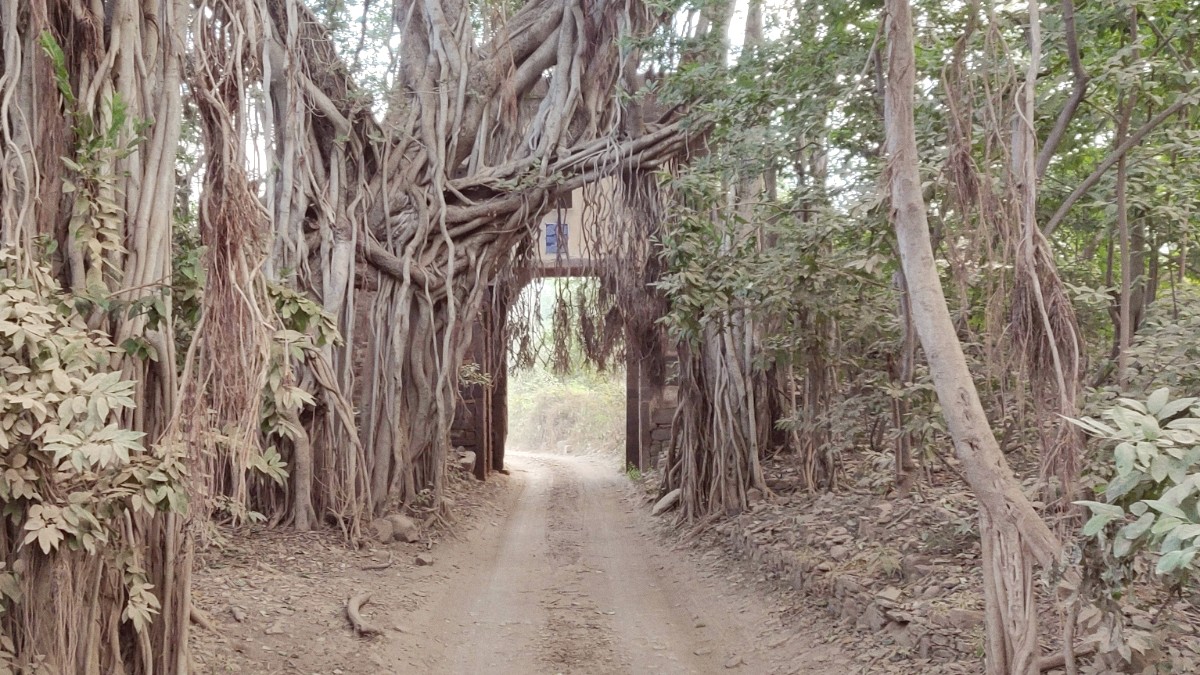
Rajasthan, India
Winter (October to March): Pleasant and comfortable weather. Daytime temperatures range from 10°C to 25°C (50°F to 77°F). Mornings and evenings, especially during safaris, are cool, requiring warm clothing. Rainfall is minimal, and humidity levels are low. This is the most popular time for visitors.
Summer (April to June): Intensely hot and dry. Temperatures regularly reach 35°C to 45°C (95°F to 113°F), sometimes exceeding these figures. The air is dry, and the sun is strong. This period is often optimal for tiger sightings, as animals gather around dwindling waterholes, making them easier to spot.
Tiger Sightings: March to June (shoulder season) is often best due to heat driving animals to water sources and sparser vegetation.
Birdwatching: November to February (high season) is ideal, as migratory bird species arrive. For comfortable weather and general sightseeing, October to March (high season) offers the most pleasant conditions.
Heatstroke is a risk. Plan activities during cooler parts of the day and stay hydrated.
Drink plenty of water throughout the day. Avoid midday sun.
Winter mornings can be very cold during open-vehicle safaris. Dress in multiple layers to stay warm.
Core park zones typically close. Safari availability is limited to fewer buffer zones.
Minimal tourist crowds for areas that remain open. Accommodation prices are significantly lower.
Heavy rainfall can disrupt travel plans and overall access.
Safari permits and accommodation book up quickly due to high demand.
Book safaris and accommodation well in advance, especially for high season.
Without advance booking, preferred zones or timings might not be available.
Most foreign nationals require a visa to enter India. The e-Tourist Visa (eTV) is the most common and convenient option. Apply online through the official Indian government visa website (indianvisaonline.gov.in). Processing typically takes 72 hours. The eTV offers various validities: 30 days, 1 year, or 5 years. A regular tourist visa requires application at an Indian Embassy or Consulate.
Your passport must be valid for at least six months beyond your planned departure date from India and have two blank pages. You will need passport-sized photographs (2x2 inches, white background). Immigration officials may ask for proof of an onward/return ticket and proof of sufficient funds to cover your stay.
Cost varies by nationality and visa type. Pay online for e-visas.
Standard procedures at arrival airports. Present ETA for e-visa holders.
Included in safari cost. Foreigner rates higher. Book safaris through tour operators or hotels (consider IVisa or VisaHQ for visa assistance).
Required for park entry. Book 90-120 days in advance for specific zones (1-10).
May apply for professional cameras or video equipment.
Costs vary depending on your travel style and preferences. This section breaks down typical expenditures.
The local currency is the Indian Rupee (INR, ₹). Exchange foreign currency at major international airports or authorized money changers. ATMs are available in Sawai Madhopur town. Major credit cards (Visa, Mastercard) are accepted at most mid-range to luxury hotels and larger shops; smaller local eateries and market stalls typically require cash.
These estimates offer a general idea of daily expenses depending on your travel style:
Tipping is customary in India, especially in the tourism sector. These are general guidelines:
This section outlines recommended precautions and emergency information.
No universal mandatory vaccinations unless arriving from a Yellow Fever risk country. Consult a travel doctor 4-6 weeks before your trip.
Routine immunizations, Hepatitis A & B, Typhoid. Rabies or Japanese Encephalitis may be advised for specific travel types.
Malaria, Dengue, Chikungunya are prevalent. Use Insect repellent containing DEET or Picaridin. Wear Long sleeves and long pants. Sleep under mosquito nets if needed.
Traveler's Diarrhoea: Very common. Drink only bottled water (check seal) or purified water. Avoid ice made from tap water, uncooked street food. Carry Anti-diarrhea medication and Loperamide. Oral rehydration salts (ORS).
Heat Stroke/Dehydration: A significant risk, especially during summer. Stay hydrated with plenty of Bottled water. Avoid midday sun. Wear lightweight, light-colored, breathable clothing.
Sunburn: The Indian sun is strong. Use High SPF sunscreen, wear Wide-brimmed hats, and Sunglasses, especially during safaris.
Access to Healthcare: Sawai Madhopur has basic medical facilities. For serious emergencies, Jaipur has well-equipped hospitals.
Always stick to bottled mineral water. Check the seal. Consider a Personal water filter bottle. Avoid tap water, even for brushing teeth, unless purified.
Eat hot, freshly cooked food. Avoid raw salads or unpeeled fruits from street vendors unless you wash them with purified water. Opt for busy eateries.
Ranthambore and Sawai Madhopur are generally safe. Be aware of surroundings in crowded areas. Avoid walking alone in isolated areas after dark. Exercise caution with unsolicited offers. During safaris, remain inside the vehicle.
Keep digital and physical copies of your passport, visa, and travel insurance policy separate from originals.
Highly recommended. Secure comprehensive coverage for medical emergencies and evacuation (consider World Nomads, SafetyWing). Also cover trip cancellation or interruption, lost or delayed luggage, and safari cancellations.
Important for unexpected illness or injury and emergency medical evacuation.
Covers non-refundable expenses if your trip is canceled or cut short.
Compensation for lost or delayed bags. Inquire about safari cancellation coverage.